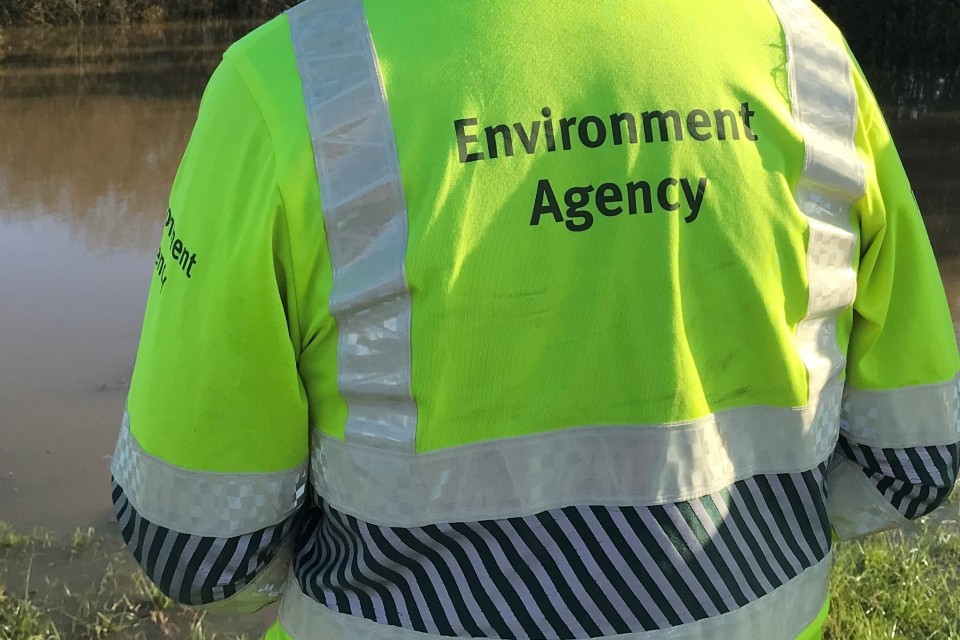
There was widespread media coverage this weekend following the latest National Drought Group meeting on Friday (14 October), chaired by Environment Agency (EA) Chief Executive Sir James Bevan.
The meeting – covered by the Telegraph, the Guardian, the Sun, the Star, the Mirror, and the Express among others – forecast that average rainfall levels over winter will still not be sufficient to avoid impending drought or drought conditions next year.
The group, made up of senior decision-makers from the EA, government, water companies and key farming and environmental groups, discussed projections for a dry autumn and winter on the water, agriculture and environment sectors in 2023. Many water companies have suggested impending drought or drought conditions will remain beyond spring in some areas – notably in parts of the South West, South East, East and Yorkshire and East Midlands - if rainfall is below average.
The Group also discussed the actions needed over the next six months to sustain essential water supplies in preparation for spring/summer next year, which includes water companies implementing their drought plans and accelerating infrastructure plans to improve resilience of water supplies in the medium term.
NDG members heard that:
- Water companies expect water resources to recover to either normal or recovering conditions by spring if we receive average rainfall - but a few companies forecast that some supply areas will still remain in drought or impending drought conditions in parts of south west, south east and east England.
- The lack of moisture in soils led to significant agricultural impacts and reduced water availability for farmers this year. Winter refill of farm storage reservoirs may be limited if there is below average rainfall this winter.
- Even with typical rainfall over winter, we could still see environmental impacts in 2023 due to a lag in the environmental response to the dry weather. These include impacts on fish populations, and a higher number of environmental incidents such as fish rescues being needed as a result of lower river flows.
- All sectors must plan for all scenarios, continue using water wisely and maximise access to water for all sectors and the environment.
This is despite the EA’s latest monthly national water situation report highlighting that for the first time since February 2022, September rainfall across England as a whole reached average levels. Due to soils remaining drier than usual, this has made limited difference to river, groundwater and reservoir levels which remain low - demonstrating that recent rainfall has not changed the underlying drought situation caused by the prolonged dry weather of the last several months.
The Environment Agency is taking action to manage the impacts of the drought, including by managing water abstraction licences, taking decisions on drought permits and operating its water transfer schemes.
The EA is also working closely with farmers and growers to support the industry. The package of measures to assist farmers announced this summer, which continues through this winter, includes water trading between farmers in catchments to help improve access to water, as well as the temporary ability to abstract additional water where it doesn’t impact existing abstractions or harm the environment.
EA Chief Executive and NDG chair, Sir James Bevan said:
Our lives, livelihoods and nature all depend on one thing - water. Climate change and population growth mean we need to take action now to ensure we have enough over the coming decades to manage everyday supplies, and more intense drought events.
We have a plan to do that and delivering it will require all of us to work together – government, water companies, regulators, farmers and businesses, and each of us as individuals. The Environment Agency is determined to do its part.
Water Minister Trudy Harrison said:
The record-breaking temperatures, unusually low rainfall and widespread drought the country has experienced this year are a reminder that we need to adapt to ensure our water supplies are resilient and secure in future.
The work of the National Drought Group is ensuring that we can manage down the risk of continuing drought conditions, so that the impact is less severe for all of us.
The NDG’s projections place more focus than ever on the actions that must be taken now to enhance resilience to dry periods and the Environment Agency is redoubling its efforts to secure long term water security, including through the National Framework for Water Resources. On Friday the NDG identified a set of actions to help accelerate delivery of new water infrastructure and the water security it will help to ensure.
The group will meet again later this autumn, on 28 November, to assess the latest position and take further action as necessary.
3 comments
Comment by William Hughes-Games posted on
So..... Have you made sure that there are beavers in every headwater in the country. No you haven't. Look at the most recent results from Otter River , not surprisingly, near Otterton to see what results when you have even far less beavers in a catchment then it's carrying capacity. Just imagine what it will be like when the beavers have taken up every possible site along this river.
Comment by John W. Baxter posted on
Such a pity that water, so essential , has been allowed to be trashed......and now hopefully, it’s lower abundance will have us give it more respect as a valuable asset, not to be exploited and trashed as it has been, but treated carefully at all times and protected from abuse.
Comment by Martin Biss posted on
Regenerative farming can now be seen as an important part of water sustainability by maintaining the levels of food production without the need for irrigation and should be fully supported.